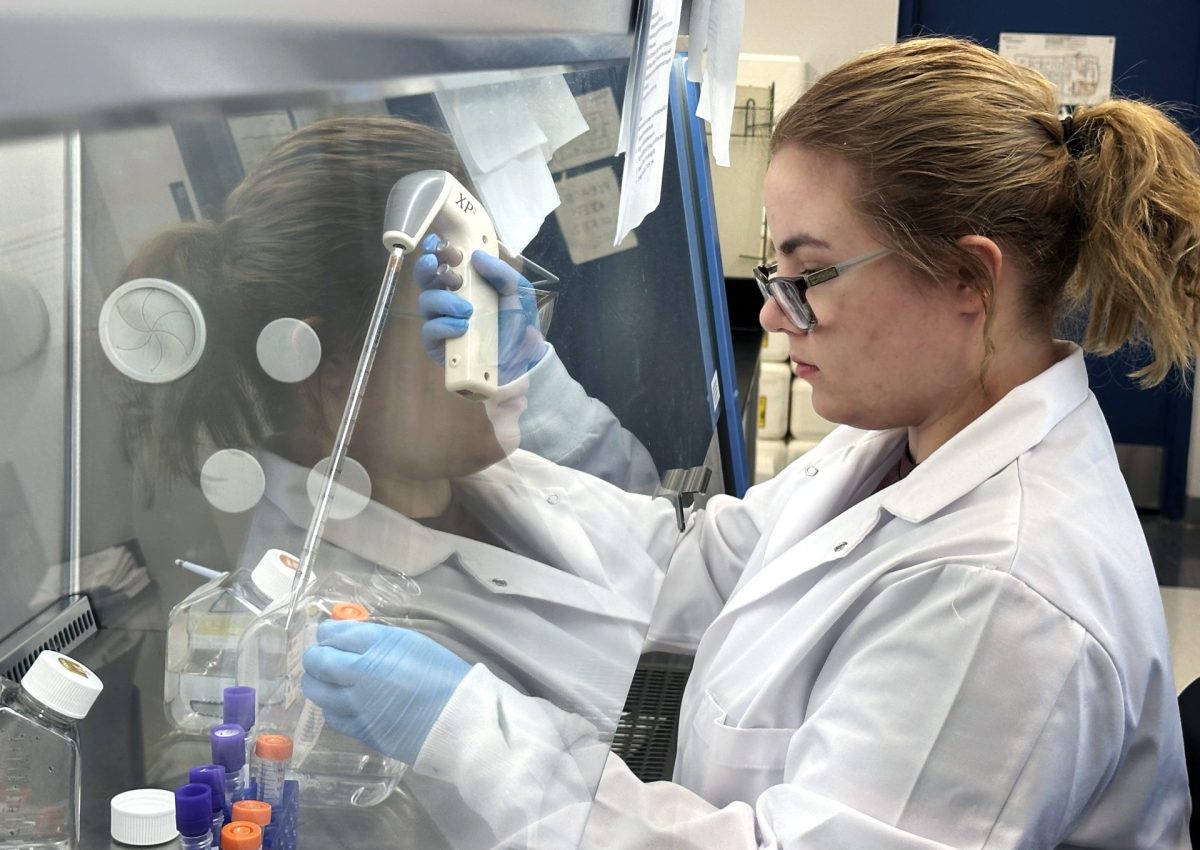DePaul students who received new electronic gadgets over the holiday season, take heed before you dispose of your old machines. You can no longer give that tired, slow laptop the traditional heaveho into the garbage can. As of Jan. 1, it is illegal to throw out old computers in Illinois.
The new policy, one of a raft of new laws that went into effect New Year’s Day, extends to other electronic devices such as cell phones, DVD players, and video game consoles, collectively called “e-waste.” The basis of the law is to keep these items–and their hazardous components like lead and mercury–out of landfills, while also recycling their usable parts.
At DePaul, where technology has increasingly become a mainstay of education, there are several policies in place to safely dispose of old computers, fax machines, and other electronics as they are replaced by new models.
University-owned items are handled by DePaul’s Procurement Services. Abe Reising, who works on the PS salvage program, explained that there are two primary methods to recycling electronics: Resold as is or salvaged for their parts.
Electronics which are still usable are wiped of their data and resold in the “salvage store” — an online-only retail store marketed mostly to DePaul students and faculty.
As for obsolete electronics?
|
NOT ALL RECYCLING CREATED EQUAL Not all recycling facilities are as green and good for the environment as we would hope. Stringent Environmental Protection Agency regulations mean that many recycling companies export products to other countries to recycle, where there are fewer regulations, labor is cheaper, and there is a high demand for recycled materials like lead. According to a 2010 EPA report, 13 U.S. recycling companies exported almost 440,000 metric tons of old lead batteries to facilities in Mexico, many of them close to residential neighborhoods, where a lack of funds and manpower has resulted in unsafe conditions for residents in the area. And those are the batteries that were shipped illegally – it’s suspected far more have entered Mexico illegally. |
“We work with recycling company N-1 Technologies,” Reising said. “They take the electronics to their warehouse… to either resell or break down to scrap…we have never discarded (for trash) electronics as long as I’ve worked here.”
Procurement Services does not take electronics from students yet, Reising went on to say, mostly due to a lack of space. For students wishing to recycle their personal electronics, though, there are other avenues.
DePaul’s Department of Environmental Health and Safety (EHS) has been collecting batteries of all varieties, as well as old cell phones from students for the past four years. Their receptacles can be seen all over the Lincoln Park campus, and at the DePaul Center in the Loop campus.
At its last count, the battery-collecting program alone collected more than 1,000 pounds of used alkaline batteries, which equals more than 16,000 batteries. They also keep a list of recycling locations in Chicago on their website, where students can take everything from old clothes to printers to pizza boxes. Graham hopes that the new law will bring an opportunity to further engage the community.
“We’re really glad about this law,” said Jenny Graham, EHS manager. “It’s tough for us to physically collect everything… now that this law is in place, we want to work on outreach.”
Gus Chagares, EHS specialist at DePaul, thinks that the law will make it easier for people to be more environmentally conscious, in part because it gives companies who sell electronics an incentive to promote their own recycling programs.
According to the new law, electronics manufacturers must reuse or recycle at least 40 percent of the weight in each category of the electronics they sold in a certain time period, or face heavy fines.
As a result, “if companies are smart, they’ll promote that they’re collecting (old electronics),” and make it easy for customers to recycle, Chagares said.
And if recycling e-waste is made easier for consumers, more will turn to it rather than their trash bins.
“If it’s simple, it’ll make a difference,” Graham said. “The law seems well-crafted in that regard.







